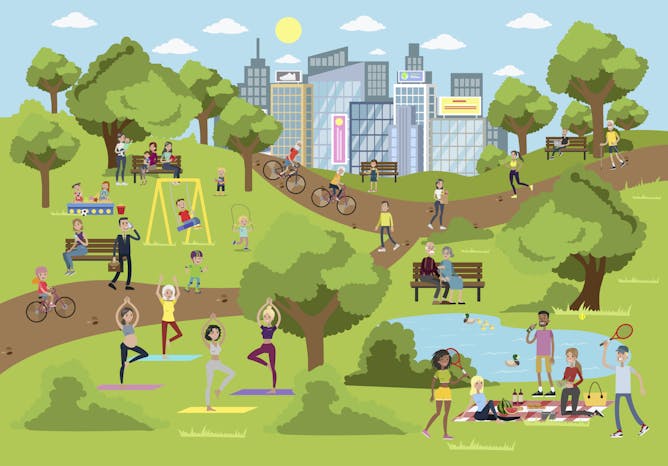|
The reign of Ugandan president Idi Amin was marked by rampant human rights abuses, but the Ugandan people have had few opportunities to come to terms with his violent legacy. Subsequent leaders have decided it’s best to forget: There have been no museums, monuments or memorials dedicated to the events of the 1970s.
University of Michigan African Studies scholar Derek Peterson writes about how a recently discovered trove of government photos – and an accompanying exhibit at the Uganda Museum – will give Ugandans one of their first opportunities to publicly discuss and debate the repercussions of Amin’s rule.
And check out other stories from the past week about crime-fighting parks, monthly food cravings and transparent medical costs.
|

Idi Amin at a press conference in Jjaja Marina, Uganda in July 1975.
Courtesy of the Uganda Broadcasting Corporation
Derek R. Peterson, University of Michigan; Richard Vokes, University of Western Australia
Hidden for decades in a vault at the Uganda Broadcasting Corporation, the photographs depict a regime fixated on establishing order, meting out punishment and stoking nationalism.
|

Contact with nature reduces stress and aggression, one reason scholars say urban green space may reduce violence.
Shutterstock
Lincoln Larson, North Carolina State University; S. Scott Ogletree, Clemson University
Some parks reduce violence in the local vicinity. Other parks attract crime. The difference has to do with how these urban green spaces are designed, programmed and managed, experts say.
|

What makes chips and chocolate so appealing at certain times of the month?
Ken Tannenbaum/Shutterstock.com
Sara Twogood, University of Southern California
Women might find themselves reaching for sweets and potato chips in the two weeks before their period, even if they don't have a diagnosis of PMS. An OBGYN explains these cyclical food cravings.
|
|
|
-
Jennifer Ladino, University of Idaho
Patriotism means pride in country, but what are we proud of? A former national park ranger suggests that visiting historic sites can remind Americans of the heritage, good and bad, that they share.
-
J.B. Silvers, Case Western Reserve University
President Trump has been backing transparency in hospital pricing so that consumers can compare prices. But will that help when the real deals are done in secret?
-
Guilberly Louissaint, University of California, Irvine
A scholar went on a Voodoo pilgrimage in Haiti and learned how an oppressive slave past has shaped its religious present.
|
|